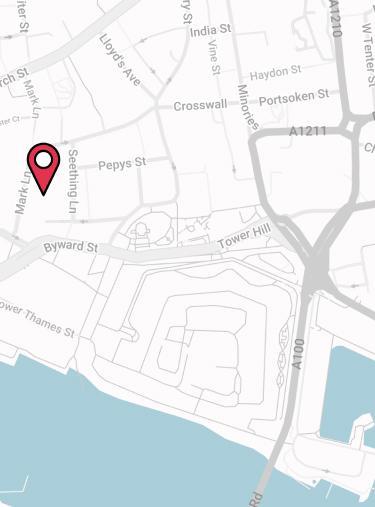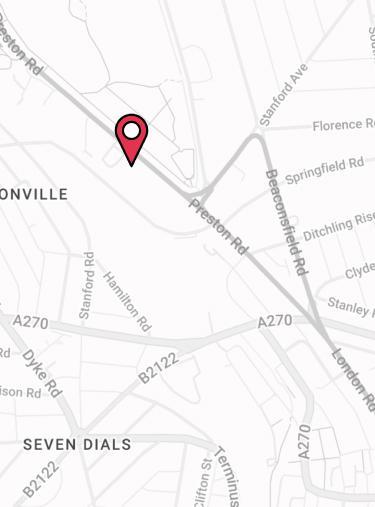
Are you and your partner thinking about Private Healthcare? Provided you live at the same address, you’re eligible for Joint Health Insurance.
But how does a joint plan work? Is it any different to an individual policy? And is it cheaper than buying two single plans? We’ll answer all these questions and more in this specialist guide.
What Is Joint Health Insurance?
Joint Health Insurance, also known as Couples Health Insurance, covers two people under a single policy. It enables you and your partner to get access to high-quality private healthcare in some of the top UK facilities.
Health Insurance for couples is designed to alleviate the stress and worry of health concerns, offering far shorter waiting times compared to the NHS should you need medical treatment.
What Are The Benefits Of Joint Health Insurance?
A Joint Health Insurance policy offers many benefits, including:
- Less admin than setting up two individual policies
- Can easily switch to a family policy if you plan to start a family
- Both you and your partner can avoid potential NHS treatment delays
- Access to the latest drugs, treatments and procedures, some of which aren’t available on the NHS due to the expense
- More flexibility over where and when you can receive treatment
- More choice over the consultant who treats you.
Why Consider Joint Private Health Insurance?
Joint Health Insurance is important not just for the speedy private healthcare aspects, but it can also give you and your partner peace of mind. If your partner becomes unwell (and vice versa), you know that you have protection in place to ensure any health concerns are dealt with promptly.

While you’ll need a GP referral to access private care, most insurers now offer virtual GP services. You can speak to a healthcare professional much sooner (without leaving your home) and get medical advice at a time that’s convenient to you.
Samantha Haffenden-Angear
Independent Protection Specialist
How Does Joint Health Insurance Work?
Joint Health Insurance works in the same way as an individual Private Health Insurance policy. The only difference is a joint policy covers two people under one plan, rather than you and your partner buying individual policies.
You’ll pay monthly or annual premiums, which then gives you access to private healthcare. The level of which will depend on the policy options you and your partner select during the setup of the policy.
If either of you need to make a claim, a claims form must be submitted to the insurer. Again, depending on the level of cover you have, the insurer will confirm if you’re eligible for private care.
If you plan to start a family, it’s easy to switch your joint policy to a Family Health Insurance plan. This ensures you, your spouse and children can get the treatment they need.
Does It Replace The NHS?
No matter how comprehensive your coverage, a Joint Health Insurance policy will never replace the NHS. Your GP will remain at the forefront of your healthcare, with the NHS providing care in cases of accidents and emergencies, pregnancy, and chronic conditions.
The balance between your NHS and private treatment will depend on the options you choose when taking out your joint policy. You’ll see how this works in the upcoming infographics.
Joint Health Insurance Without Outpatient Cover
If you set up Joint Health Insurance without any outpatient cover, it means you’ll both use the NHS for all outpatient care. This includes diagnostic tests and scans. Your GP will refer you to NHS facilities for diagnosis. After this, you’ll then be referred to a private facility for treatment if the policy covers the health concern in question.
But given NHS waiting times, opting for no outpatient cover on your policy could delay private inpatient treatment you need. With this in mind, it’s why we recommend our clients to at least add some level of outpatient cover to their policy.

Joint Health Insurance With Outpatient Cover
If you decide to pay a higher premium in order to speed up the diagnostic process, your journey to private treatment is a little different.
Instead of your GP referring you to the NHS, you’ll be referred to a private facility straight away. While it does cost more to include outpatient cover on your Joint Health Insurance, it speeds up the diagnostic process — helping you and your partner access the right treatment sooner and potentially preventing any issues from becoming more serious.

While adding outpatient cover increases the cost of Couples Health Insurance, we recommend at least some level of this with your policy. Doing so can speed up diagnosis and treatment for conditions, compared to waiting for NHS care.
What Does Joint Private Health Insurance Cover?
Aside from the core cover (you’ll find a breakdown of what this means below), there are a range of policy options to choose from. These decisions will affect how comprehensive your joint policy is, as well as the price and the treatments covered.
Acute Conditions
Like all medical Insurance, joint policies only cover eligible acute conditions. So, it’s essential to know the difference between acute and chronic conditions:
- Chronic conditions
This refers to health problems that are with you for life. Doctors are unable to cure them, but they can help you to manage your symptoms. For example, diabetes and asthma - Acute conditions
Acute conditions are those that are ‘fixed’ with time and treatment. This includes cataracts requiring removal or joint pain, which is fixable through a joint replacement.
Even with Couples Private Health Insurance in place, the NHS provides all ongoing management of chronic health problems. There isn’t a Health provider on the UK market that covers lifelong conditions.
Inpatient Or Outpatient Treatment
It’s important to distinguish between inpatient and outpatient care. All of your healthcare needs, whether private or on the NHS, are categorised as either inpatient or outpatient.
- Inpatient/day-patient
This is any treatment which requires a hospital bed, either overnight (inpatient) or for a day (day-patient). Inpatient/Day-Patient care includes major and minor surgeries, such as removing an appendix due to appendicitis - Outpatient
Outpatient care refers to any treatment you or your partner undergoes without needing a hospital bed. Diagnostic testing, scans and physiotherapy are considered outpatient. Procedures like cataract removal, joint replacements and colonoscopies.
All UK Joint Health Insurance providers cover inpatient care and procedures in full. This is a standard across the board, with outpatient services available at additional cost.
Standard Coverage
Health Insurance for couples tends to include the following as standard:
- Cancer care and treatment (more on this later)
- Diagnostic testing, such as MRI scans and blood tests
- Private hospitals and nursing care
- Surgery as inpatient or day-patient.
Then, depending on the level of outpatient cover you select, you may also get access to:
- Mental health support
- Full outpatient care
- Complementary therapies
- Physiotherapy.
Cancer Cover
Cancer cover is one of the most valuable elements of any Joint Health Insurance policy. In fact, many of our clients buy a policy for the extensive cancer cover alone. Private Health Insurance often provides access to cutting-edge drugs, treatments, and procedures that may not be available on the NHS due to cost constraints.
Cancer cover typically includes:
- Chemotherapy
- Radiotherapy
- Biological / hormone therapies
- Cancer surgery / reconstruction.
Depending on your provider and level of cover, you may also have access to other elements of cancer cover. These might include:
- The option to have chemotherapy at home rather than in hospital
- Cash towards wigs / prosthetics you require as a result of cancer treatment / surgery
- Money towards scalp cooling to reduce hair loss from chemotherapy
- Donations to a hospice should you require palliative care
- Access to a set number of days of home nursing, where a private nurse visits you at home during your care to check in with you.
What Doesn’t Health Insurance For Couples Cover?
All insurance policies have exclusions. It doesn’t matter your age, health, or location, these exclusions apply to all policyholders:
Private Health Insurance for a couple will not cover:
- Pre-existing conditions
- Emergency care (the NHS is always there for this)
- Health concerns relating to substance abuse
- Pregnancy / fertility treatment
- Cosmetic surgery that’s deemed as not medically necessary
- HIV / AIDs
- Kidney dialysis
- Self-inflicted injuries, such as those caused by dangerous sports / hobbies.
Additional Support And Services
The UK Private Medical Insurance landscape has developed over the years. Many insurers now offer a variety of free additional benefits to policyholders, designed to support your health and wellbeing.
Your Joint Health Insurance policy could include:
- Remote GP services
- Health checks
- Physiotherapy
- Stress and mental health support
- Second medical opinions
- Retail discount platforms to save money on everyday living expenses.
Health Insurance Client Stories
Do You Really Need Couples Health Insurance?
One of the top reasons to buy Joint Private Health Insurance is that it simply makes life easier. Rather than two separate policies, you and your partner are covered under one policy, cutting down time spent on admin and setting up individual plans.
Many of us juggle busy lifestyles, so arranging insurance policies for yourself sometimes takes the backseat. With a Joint Health Insurance plan, you’ll receive one set of policy documents and one renewal date.
It cuts the admin in half, as a full UK market Private Health Insurance comparison only needs to be done once, instead of twice a year.
Taking on a more generalist viewpoint, more and more people are now buying Private Health Insurance. While the NHS does a fantastic job, our beloved healthcare system is under unprecedented strain.
A BMA analysis of the NHS backlog data found that as of November 2024:
- Around 6.28 million patients were waiting for treatment
- At least 3.1 million of those had been waiting over 18 weeks for treatment, and almost 222,000 had been waiting over a year
- The median waiting time was 14 weeks – almost double the pre-covid median of eight weeks in November 2019.
From these stats alone, you can see the pressure the NHS is facing.

Taking out Joint Health Insurance can speed up this entire process, meaning you don’t have to wait weeks or months for treatment. When you combine this with the joint policy aspect, you’ll save time in both respects. Shorter waiting times and less hassle buying policies.
Alex Weir
Independent Health & Protection Specialist
How Much Does Joint Health Insurance Cost?
A Joint Health Insurance policy gives you a variety of cover options to choose from. The decisions you make when setting up the policy determine how comprehensive it is. Generally speaking, the more comprehensive the policy, the higher the premiums.
It’s difficult to provide you with a solid figure for premiums, as many factors affect the policy and its pricing. That said, the cost of Joint Health Insurance should typically work out to be double an individual policy for one person.
But this is assuming all policy metrics are the same. E.g. Both partners are non-smokers, the same age and have similar medical histories. It’s safe to say that the chances of this scenario popping up are quite low.
So, what are the factors that influence cost? And how do they impact it?
The Insurer
Each insurer will charge a different monthly premium due to its appetite for risk and the variety of services it offers. Since every provider is different, it’s best to shop around when buying Couples Medical Insurance.
To highlight the differences in cost from provider to provider, here’s an example. Monthly premiums are based upon:
- A couple aged 35 who are both non-smokers
- Comprehensive cover
- A £250 excess.
| Provider Comparison | |
|---|---|
 |
 |
| £134.38 | £165.38 |
Quotes correct as of October 2025
The Level Of Outpatient Cover
There are differing levels of outpatient cover. These will affect the cost of your policy.
- Mid-range outpatient cover
This can provide up to £1,500 worth of outpatient care, offering a happy medium between no outpatient cover and full cover - Full outpatient cover
Opting for this level of outpatient cover is the most expensive. But it does offer you and your partner access to private outpatient treatment from the outset.
Using the same policy factors as above, here are some quotes to show you how outpatient cover impacts the monthly cost of Bupa healthcare:
| Outpatient Cover Comparison | ||
|---|---|---|
| Type Of Policy | Outpatient Cover | Cost |
| Basic | £0 | £87.72 |
| Mid-range | £1,000 | £126.88 |
| Comprehensive | Full | £159.04 |
Quotes correct as of October 2025
Excess Amount
An excess is the amount you’ll have to pay upfront towards your care before the policy kicks in to cover the rest. This is normally paid out once per policy year.
The higher your excess, the lower your premiums.
Excesses range from £0 to £5,000. Opting for the highest amount will provide significant premium savings, compared to a £0 excess. However, this doesn’t mean you should automatically select the highest amount. You’ll pay this sum upfront before getting treatment, so it needs to be affordable.
Take a look at the following quotes from Freedom Health to get a better understanding of how excess impacts the overall premium. This is based on the same criteria above (comprehensive cover for a couple aged 35).
| Excess Amount Comparison | |
|---|---|
| Excess Amount | Monthly Premium |
| £0 | £177.98 |
| £100 | £160.18 |
| £500 | £137.94 |
Quotes correct as of October 2025
Your Ages
The older you and your partner are, the more likely you are to develop a health condition. To protect against this risk, insurers charge older people more for cover.
Using the same example as above, we’ve provided some examples of Joint Health Insurance costs from Aviva Healthcare.
| Age Comparison | |
|---|---|
| Age | Monthly Premium |
| 35 year old couple | £172.54 |
| 45 year old couple | £236.66 |
| 55 year old couple | £324.24 |
Quotes correct as of October 2025
Smoker Status
Some Joint Health Insurance providers will bump up the costs for smokers due to the health risks.
All the previous cost examples we’ve given you are for a non-smoking couple. To show you the price change, the following monthly premiums are examples of two non-smokers and two smokers.
| Smoking Comparison | |
|---|---|
| Non-smokers 🚭 | Smokers 🚬 |
| £165.38 | £173.65 |
Quotes correct as of October 2025
Treatment Facilities
Joint Private Health Insurance doesn’t automatically deem you and your partner eligible for treatment in any and all private facilities.
When you buy a policy, you’ll choose a hospital network which determines where you can have private treatment. Just like outpatient care, there are tiers of cover.
A hospital network consisting of the top private hospitals in the UK, including those located in Central London, is the most expensive tier. This reflects the cost of care in these facilities.
Or you can select a limited hospital network which may include treatment in local private facilities or private wings of NHS hospitals. If you’re not too fussed about where you receive treatment, a limited hospital network can reduce the cost of premiums.
There is also an option called Guided Care in which you’ll choose a treatment facility from a shortlist of hospitals and consultants. Depending on the insurer in question, Guided Care can be significantly cheaper than a hospital network with unrestricted access.
Your Location
Where you and your partner reside is taken into consideration during your Joint Health Insurance application.
If you live in an area where private healthcare is more expensive for the insurer to cover (such as Central London), your premiums will reflect this.
How To Reduce The Cost Of Joint Health Insurance
There’s often a stigma attached to Private Medical Insurance, in that it’s too expensive for the everyday person. But in reality, insurers are aware of the potential cost barriers and offer several ways to reduce the cost to fit your budget.
You can pay less by:
1. Adjusting Your Excess
Choosing an affordable excess is a great way of reducing costs without compromising on your level of cover.
While you can opt for a £0 excess, most insurers offer £100 as their cheapest option. Excesses can go all the way up to £5,000, depending on the provider.
It might seem a good idea to choose the highest excess, especially if you and your partner are on a budget. But should you be unable to afford this amount when making a claim, the initial money saving does more harm than good.

Most methods of cutting premiums limit how comprehensive your policy is. With this in mind, we therefore feel it’s important to discuss your options with a specialist. They’ll help you find the right balance between affordability and coverage. Select an excess amount you can afford. There’s no use selecting a £1,000 excess if that sum is out of your price range.
Darren Jaynes
Independent Protection Specialist & Manager
2. Limiting Outpatient Cover
Adding outpatient cover to your Joint Health Insurance policy increases premiums.
Your options here are to:
- Choose Low Cost Health Insurance which means both of you will use the NHS for all outpatient care
- Choose a middle ground by limiting the amount of outpatient cover you’re eligible for.
Without any outpatient cover, you may experience delays in accessing private inpatient services. With this in mind, we tend to recommend you include at least some level of outpatient cover.
The limited outpatient cover option enables you to still access outpatient services, just at a limited monetary value. Depending on the insurer, this is either £1,000 or £1,500, meaning this is the highest amount an insurer will cover for outpatient care.
A mid-range Joint Health Insurance policy will be cheaper than comprehensive cover but still offer some level of outpatient care.
3. Opting For A Limited Hospital Network
Every Joint Health Insurance provider will offer a tiered scale of facilities you and your partner can receive treatment in.
Generally, the top tier consists of the best private facilities in the country, including those in Central London. Choosing this hospital network increases premiums.
But, by selecting a more restricted hospital network, you’ll pay less for your Joint Health Insurance. While it does limit where treatment can be sought, you still get your care privately.
4. Choosing The 6 Week NHS Wait Option
Another way of reducing how much you pay for Couples Health Insurance is the 6 week NHS wait option.
If you add this, then upon making a claim your insurer will look at your local NHS waiting times for the inpatient treatment you need. If the waiting list is less than 6 weeks, you’ll receive care from the NHS.
But if the NHS waiting list is longer than 6 weeks, your Joint Health Insurance policy kicks in. You’ll then be eligible to receive inpatient care privately. The same applies if the NHS doesn’t cover the procedure you need.
Due to the current length of NHS waiting times, some insurers such as AXA aren’t offering this option. The market changes regularly, so if you’re unsure, give us a call on 02074425880 or email help@drewberry.co.uk to find out your options.
5. Reviewing The Market Regularly
Now, this is one to consider once you’ve got a policy. As all Joint Health Insurance policies renew annually, you may find premiums increase year by year to reflect healthcare costs and inflation.
This is where a full market review before your renewal period is essential. If your premiums have increased from the previous year, a market review can help to identify if you’re still getting the best coverage for your money.
Part of our services at Drewberry™ include a market review at the time of renewal. One of our specialist advisers will be more than happy to help you compare Joint Health Insurance quotes on your behalf.
Switching Providers
If we find a better deal for your policy with another provider, we can help to facilitate the switch. While switching providers is possible, it’s best left to the specialists as the new policy needs to be on a Continued Personal Medical Exclusions basis.
We can ensure you and your partner continue to get the same level of cover with your new provider as your last. The insurer will not add any new exclusions to the policy which don’t already exist on your current joint plan.
Health Insurance Product Reviews
What Is The Best Health Insurance For Couples?
You have five major UK Health Insurance providers to choose from:
There are many factors to consider and a range of policy options to pick from. The best Private Health Insurance is subjective as a result. Your Joint Health Insurance policy needs to suit both you and your partner’s healthcare needs as well as your budget, for example.
There are some smaller, specialist providers that may better suit your needs. At Drewberry, we have access to the entire market. We’ll compare Joint Health Insurance quotes from every insurer in the UK, so you can be sure you’re getting the best cover for the best price.
Joint Health Insurance FAQs
Can unmarried couples be on the same policy?
Yes. You’re eligible for Joint Health Insurance as long as you live with your partner. In fact, even if you don’t reside together, you may be able to buy a family plan together.
The best fit for you and your partner depends on your individual circumstances and needs. It’s worth speaking to a financial adviser who can help find the right policy for you.
What if my partner has a pre-existing condition?
The policy terms and conditions relating to your medical history will be different from your partner’s. When applying for Joint Health Insurance, you’ll likely need to disclose your medical history, so you’ll both know what you’re covered for once the policy is active.
If you’re worried about an existing health concern impacting your cover, please don’t hesitate to give us a call. We can answer any questions you may have and help to arrange the most suitable joint policy for your circumstances. Call us on 02074425880 or email help@drewberry.co.uk.
Can I still get a policy if my partner is pregnant?
Yes, you can. However, it’s important to be aware that the policy will not cover routine pregnancy related healthcare. This is an exclusion placed on all Medical Insurance policies.
That said, some Joint Health Insurance providers may cover complications that arise due to pregnancy. Coverage differs from insurer to insurer, so it’s best to check what your policy covers from the outset.
Is it cheaper to get Joint Health Insurance than individual policies?
In most cases, the cost of Joint Health Insurance works out to be the combined price of two individual policies. Some insurers may offer a small discount as an incentive, but it’s dependent entirely on the insurer.
You may find that buying a joint policy ends up costing more than individual ones if you or your partner have different medical histories. For example, if you have a pre-existing condition, the cost of the policy may increase.
Compare Joint Health Insurance Quotes And Get Specialist Advice
With so much to consider when buying Joint Health Insurance, getting the best cover can be a bit overwhelming. So why not ask a specialist for advice?
Our team of financial advisers are specialists; they know the providers and policy features like the back of their hands. This puts us in a great position to offer you advice and recommendations for your joint policy.
We’ll search the insurance market on your behalf and help you to make an informed decision on the best Joint Health Insurance policy for you. If you’d like our help in choosing and setting up a policy, give us a call on 02074425880. One of our advisers will be happy to help. Alternatively, email help@drewberry.co.uk and we’ll get back to you.
Why Speak to Us?
When it comes to protecting your health, you deserve first-class service. Here’s why you should talk to us:
- There’s no fee for our service
- We’re an award-winning independent insurance broker, working with the leading UK insurers
- You’ll speak to a dedicated specialist from start to finish
- 4090 and growing independent client reviews rating us at 4.92 / 5
- Claims support when you need it most
- Authorised and regulated by the Financial Conduct Authority. Find us on the financial services register.
Contact Us
125-135 Preston Road
Brighton
BN1 6AF
Cookies
Drewberry™ uses cookies to offer you the best experience online. By continuing to use our website you agree to the use of cookies including for ad personalization.
If you would like to know more about cookies and how to manage them please view our privacy & cookie policy.














![Bupa Health Insurance [Review] Image](/_next/image?url=https%3A%2F%2Fmedia.drewberry.co.uk%2FProject-Penguin-Provider-logosBUPA.png&w=480&q=75&dpl=4204)


